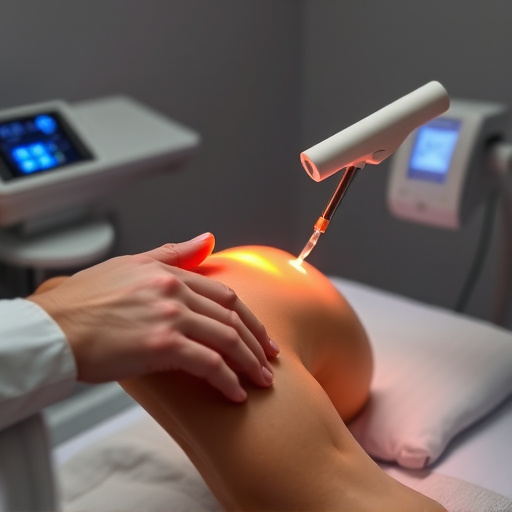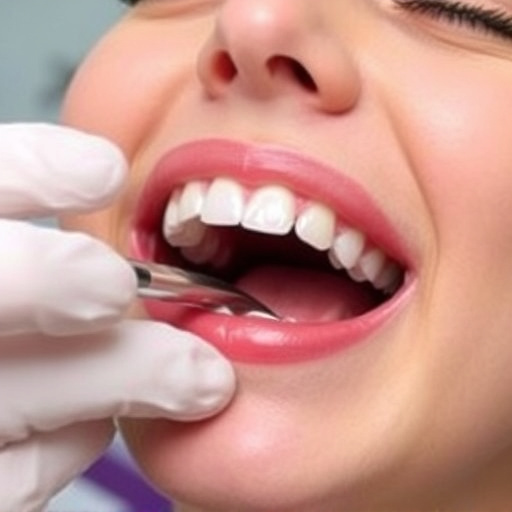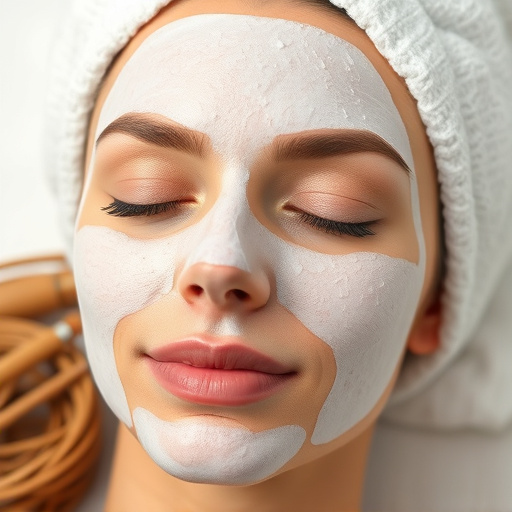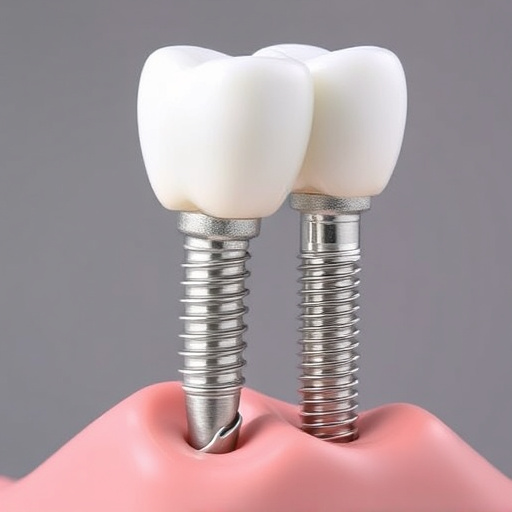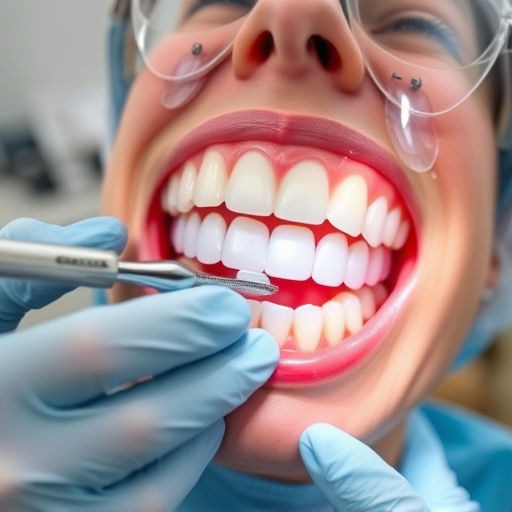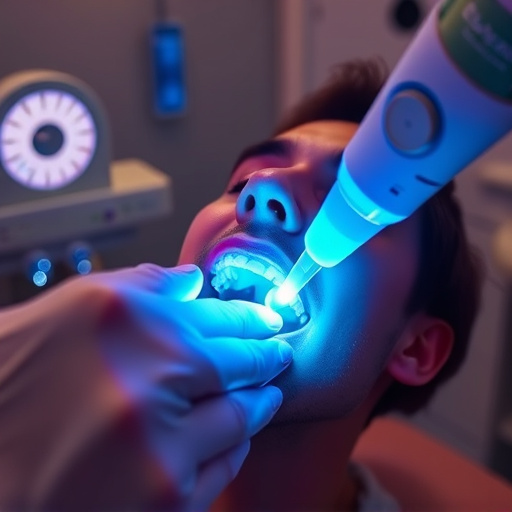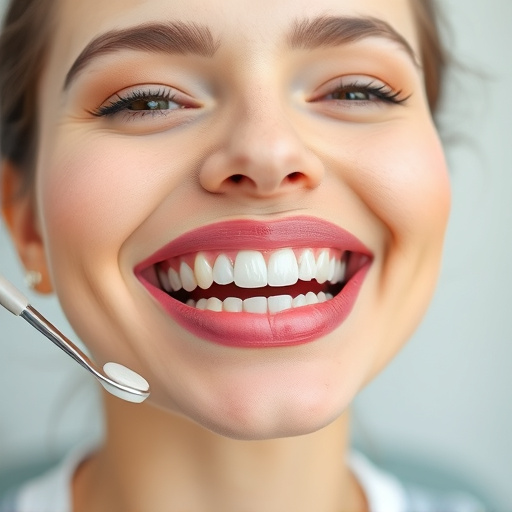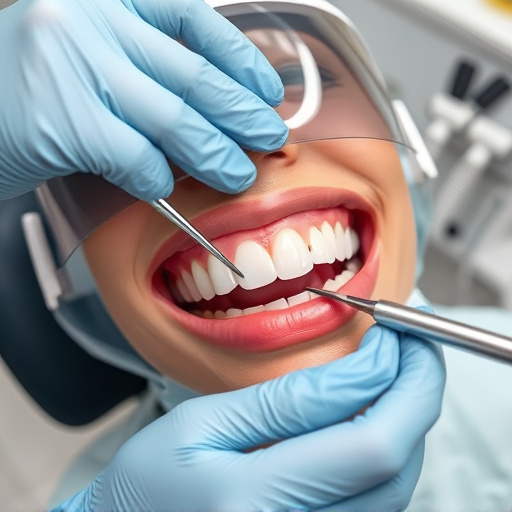Sleep apnea, a common but often undiagnosed sleep disorder, disrupts breathing during sleep, leading to fatigue and health risks. Early identification through dentistry screenings or procedures like wisdom tooth removal is crucial. Modern sleep apnea treatment options include lifestyle changes, CPAP therapy, oral appliances, and surgery for improved sleep quality. Integrated healthcare approaches, including regular dental checkups, significantly enhance treatment. Telemedicine and cosmetic dentistry have increased accessibility to sleep apnea treatment, particularly in regions with limited resources.
Sleep apnea, a common yet often overlooked health concern, is now gaining recognition as an essential area of healthcare. This condition affects millions worldwide, with symptoms ranging from loud snoring to disrupted breathing patterns during sleep. In this article, we explore the profound impact of sleep apnea and delve into modern treatment innovations. We also discuss challenges in accessing healthcare for this condition and present solutions to ensure better care for those affected by sleep apnea, emphasizing the growing importance of personalized sleep medicine.
- Understanding Sleep Apnea: Symptoms and Impact
- Modern Treatments: Innovations in Care
- Accessing Healthcare: Challenges and Solutions
Understanding Sleep Apnea: Symptoms and Impact
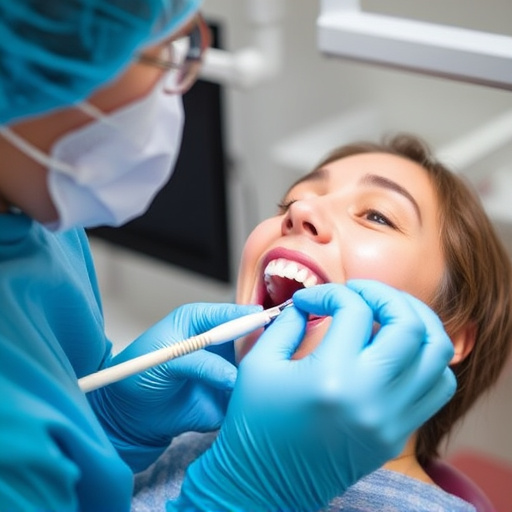
Sleep apnea is a sleep disorder characterized by pauses in breathing or shallow breaths during sleep, which can last for several seconds to minutes and occur multiple times each night. Understanding its symptoms and impact is crucial when considering the essence of sleep apnea treatment as essential healthcare. Those affected may experience excessive daytime sleepiness, disrupted sleep patterns, and potential long-term health consequences such as cardiovascular disease, diabetes, and cognitive impairment. The disorder can also lead to loud snoring, abrupt awakenings, and chronic fatigue, significantly impacting quality of life and overall well-being.
Recognizing the signs is vital for early intervention and effective management. While some individuals may experience noticeable symptoms, others might be asymptomatic, highlighting the importance of general dentistry screenings or even procedures like wisdom tooth removal in identifying underlying issues. Even subtle indications of sleep apnea can prompt further evaluation, leading to tailored treatments that may include lifestyle changes, continuous positive airway pressure (CPAP) therapy, oral appliances, or surgical interventions, ultimately enhancing sleep quality and promoting overall health.
Modern Treatments: Innovations in Care
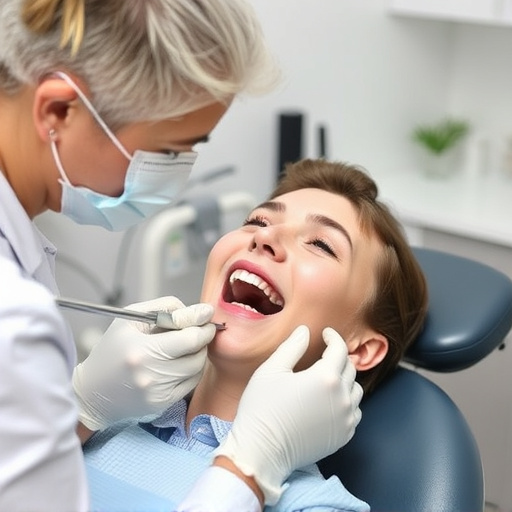
In recent years, modern advancements have transformed the landscape of sleep apnea treatment, offering patients more effective and comfortable options than ever before. Innovative approaches like continuous positive airway pressure (CPAP) machines have been refined to be lighter, quieter, and more user-friendly, making them a viable long-term solution for many. Additionally, dental treatments have emerged as game-changers in managing sleep apnea, particularly through oral appliance therapy (OAT). These custom-fitted devices gently reposition the jaw during sleep, preventing the airway from collapsing.
Cosmetic dentistry also plays a role in addressing sleep apnea, as some procedures focus on correcting bite issues or jaw structure abnormalities that contribute to the condition. Regular dental cleanings and checkups are crucial for maintaining oral health, which is essential for managing sleep apnea effectively. These modern treatments demonstrate how integrated healthcare approaches can significantly improve quality of life for those affected by this common yet serious disorder.
Accessing Healthcare: Challenges and Solutions
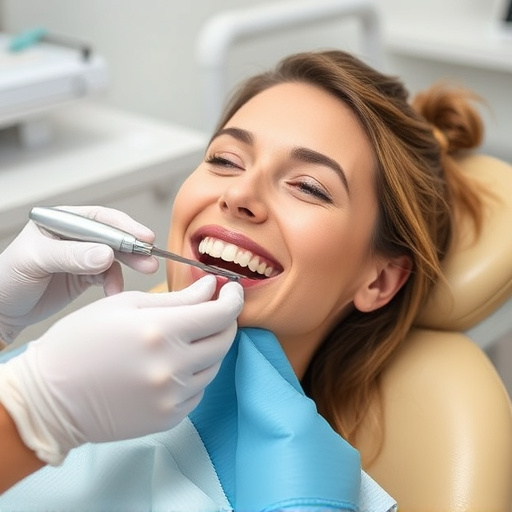
Accessing quality healthcare for sleep apnea treatment has long been a challenge for many patients worldwide. This is particularly true in regions with limited medical resources or where specialized clinics are scarce. However, advancements in telemedicine and digital health technologies have significantly bridged this gap. Online consultations, remote monitoring, and mobile applications now enable patients to receive personalized care from the comfort of their homes.
Additionally, integrating dental services into the healthcare landscape for sleep apnea management has gained recognition. Cosmetic dentistry, including teeth cleaning and repair procedures, can play a crucial role in addressing respiratory issues associated with sleep apnea. By combining expertise in both medical and dental fields, healthcare providers can offer comprehensive solutions, ensuring improved quality of life for patients suffering from this condition.
Sleep apnea treatment has evolved from a niche concern to an essential healthcare consideration. Modern innovations, such as advanced therapies and improved access to care, are transforming the way we manage this condition. By recognizing the impact of sleep apnea on overall health and implementing accessible solutions, individuals can experience better quality of life and enhanced well-being. As awareness grows, continued advancements in sleep apnea treatment will ensure that more people receive the care they need.

